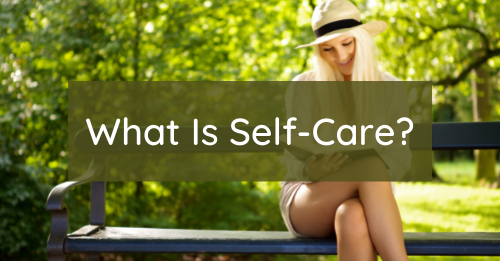People from every background are searching for ways to reduce the stress of modern life. Self-care is not selfish or self-indulgent — it’s essential. It means consciously taking care of yourself so you can be healthy, happy and there for other people.
Types of Self-Care
Self-care is more than following a skin care regimen or taking walks. In its broadest sense, self-care means tuning in to your needs and then meeting them. This can take many forms:
- Physical self-care: You can improve your physical health through nutrition, hygiene, staying active and getting enough sleep.
- Practical self-care: Completing the practical aspects of your life can prevent stressful situations. This type of self-care might involve cleaning your home or managing your budget.
- Social self-care: Do activities that nurture your closest relationships, such as calling up a friend.
- Emotional self-care: Staying in tune with your emotions is self-care. It’s important to have healthy outlets, such as journaling or therapy.
- Intellectual self-care: Do activities that stimulate your mind, such as learning something new or reading a book.
- Spiritual self-care: Nurture your spirit so you can see the big picture. Spiritual self-care might involve going to a place of worship, being in nature or practicing mindfulness meditation.
Why Is Self-Care Important?
When you start incorporating the value of self-care into your life, you’ll notice many benefits. Self-care:
- Encourages you to maintain a healthy relationship with yourself.
- Increases positive thinking.
- Makes you less susceptible to mental and physical health issues.
- Helps you feel calm, relaxed, energetic and joyful.
- Contributes to long-term health and well-being.
- Reinvigorates you so you can be a better caretaker or friend.
Self-Care Tips
Self-care is not a one-size-fits-all strategy, so it’s essential to develop a customized plan to meet your needs. Here are some tips to help you start your journey to self-care.
1. Live Healthily
Healthy living will lower feelings of stress and help you feel more energized. Make sure you’re getting enough sleep, eating nutritious foods, exercising regularly and avoiding drugs and alcohol. Healthy living also means managing your stress levels and going for regular medical checkups.
2. Practice Good Hygiene
Hygiene plays a huge role in how you view yourself and the world around you. Take time to indulge in a self-care regimen that helps you feel and look great.
3. Encourage Healthy Friendships
Go out with friends who build your sense of belonging. Try grabbing some coffee or having a quick chat over the phone. You should also be open to new friendships that can enrich your life.
4. Do Something You Enjoy
Try to do something you love every single day. Whether that’s watching a great TV show, gardening, reading or painting, make time for the activities that bring you joy.
5. Find Ways to Relax
There are countless ways to calm your mind and help your body unwind. Find some relaxation techniques that work for you, like yoga, meditation, a long bubble bath, walking through a park or getting a massage.
6. Learn to Say No When You Need To
Too often, we say yes to spare someone’s feelings at the expense of our own peace or health. Saying yes to everything can lead to burnout. Remind yourself that you can’t possibly make everyone happy all the time.
Learn the Importance of Self-Care in Recovery
Burnout, stress and depression can lead to self-medicating with drugs or alcohol. If you’re caught in a web of addiction, help is here. At 7 Summit Pathways, we take a holistic approach to Recovery by incorporating essential self-care techniques into your personalized treatment plan. Get in touch with us today to learn more.
